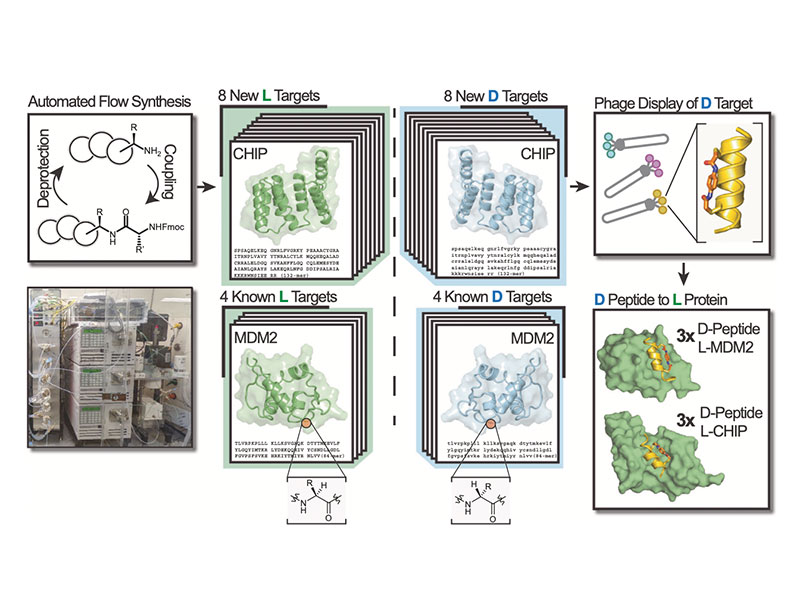
Mirror-image ligand discovery enabled by single-shot fast-flow synthesis of D-proteins

Mirror-image ligand discovery enabled by single-shot fast-flow synthesis of D-proteins
Alex J. Callahan, Satish Gandhesiri, Tara L. Travaline, Rahi M. Reja, Lia Lozano Salazar, Stephanie Hanna, Yen-Chun Lee, Kunhua Li, Olena S. Tokareva, Jean-Marie Swiecicki, Andrei Loas, Gregory L. Verdine, John H. McGee & Bradley L. Pentelute
Nature Communications
Abstract
Widespread adoption of mirror-image biological systems presents difficulties in accessing the requisite D-protein substrates. In particular, mirror-image phage display has the potential for high-throughput generation of biologically stable macrocyclic D-peptide binders with potentially unique recognition modes but is hindered by the individualized optimization required for D-protein chemical synthesis. We demonstrate a general mirror-image phage display pipeline that utilizes automated flow peptide synthesis to prepare D-proteins in a single run. With this approach, we prepare and characterize 12 D-proteins – almost one third of all reported D-proteins to date. With access to mirror-image protein targets, we describe the successful discovery of six macrocyclic D-peptide binders: three to the oncoprotein MDM2, and three to the E3 ubiquitin ligase CHIP. Reliable production of mirror-image proteins can unlock the full potential of D-peptide drug discovery and streamline the study of mirror-image biology more broadly.



